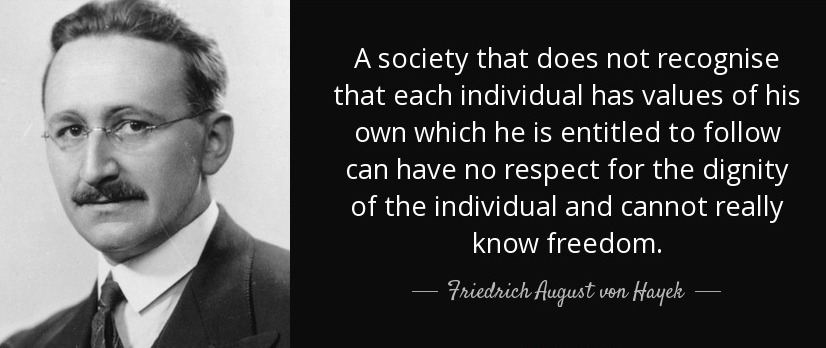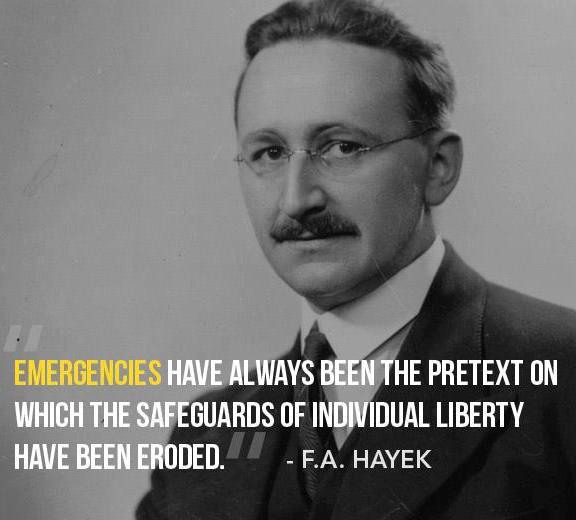|
home | what's new | other sites | contact | about |
||
|
Word Gems exploring self-realization, sacred personhood, and full humanity
F.A. Hayek The Road To Serfdom
return to "Economics" main-page
"... the single most influential political book published in Britain during this century." History Today "Nearly half a century ago, most of the smart people sneered when Hayek published The Road to Serfdom. The world was wrong and Hayek was right." Forbes "The Road to Serfdom has inspired and infuriated politicians, scholars, and general readers for half a century. Originally published in England in the spring of 1944 - when Eleanor Roosevelt supported the efforts of Stalin, Albert Einstein subscribed to the socialist program... The Road to Serfdom was seen as heretical for its passionate warning against the dangers of state control over the means of production. For F.A. Hayek, the collectivist idea of empowering government with increasing economic control would inevitably lead not to a utopia but to the horrors of Nazi Germany and Fascist Italy." - from the 50th anniversary edition
"How sharp a break not only with the recent past but with the whole evolution of Western civilization the modern trend toward socialism means becomes clear if we consider it not merely against the background of the nineteenth century but in a longer historical perspective. We are rapidly abandoning not the views merely of Cobden and Bright, of Adam Smith and Hume, or even of Locke and Milton, but one of the salient characteristics of Western civilization as it has grown from the foundations laid by Christianity and the Greeks and Romans... The Nazi leader who described the National Socialist revolution as a counter-Renaissance spoke more truly than he probably knew." F. A. Hayek
|
||
|
|


